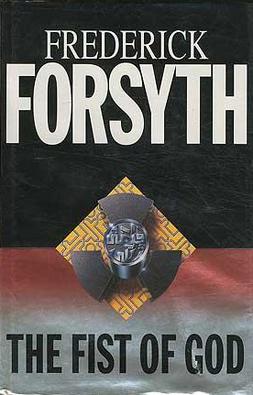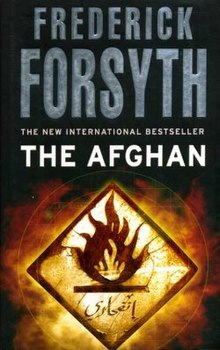
John Philip Walker Lindh is an American Taliban member who was captured by United States forces as an enemy combatant during the United States' invasion of Afghanistan in November 2001. He was detained at Qala-i-Jangi fortress, used as a prison. He denied participating in the Battle of Qala-i-Jangi, a violent uprising of the Taliban prisoners, stating that he was wounded in the leg and hid in the cellar of the Pink House, in the southern half of the fort. He was one of the 86 prisoners who survived the uprising, from an estimated 400 prisoners in total. CIA officer Johnny "Mike" Spann was killed during that uprising. Brought to trial in United States federal court in February 2002, Lindh accepted a plea bargain; he pleaded guilty to two charges and was sentenced to 20 years in prison. He was released on supervision on May 23, 2019, for a three-year period of supervised release.

Gulbuddin Hekmatyar is an Afghan politician, and former mujahideen leader and drug trafficker. He is the founder and current leader of the Hezb-e-Islami Gulbuddin political party, so called after Mohammad Yunus Khalis split from Hezbi Islami in 1979 to found Hezb-i Islami Khalis. He has twice served as Prime Minister during the 1990s.

Johnny Micheal "Mike" Spann was an American paramilitary officer in the Central Intelligence Agency's Special Activities Division. Spann was the first American killed in combat during the United States invasion of Afghanistan in 2001. He died at the Qala-i-Jangi fortress during an al-Qaeda prisoner uprising.

The Special Activities Center (SAC) is a division of the United States Central Intelligence Agency responsible for covert and paramilitary operations. The unit was named Special Activities Division (SAD) prior to 2015. Within SAC there are two separate groups: SAC/SOG for tactical paramilitary operations and SAC/PAG for covert political action.

The Fist of God is a 1994 suspense novel by British writer Frederick Forsyth, with a fictitious retelling of the Iraqi Project Babylon and the resulting "supergun".

Shortly after the brutal September 11 terrorist attacks, the United States declared the war on terror and subsequently led a multinational military operation against Taliban-ruled Afghanistan. According to many sources, Taliban has a very close alliance with al-Qaeda. Al-Qaeda was sheltered by Taliban and trained its terrorists on Afghan soil. The Taliban was unwilling to directly hand over bin Laden to the United States. The stated goal was to dismantle al-Qaeda, which had executed the attacks under the leadership of Osama bin Laden, and to deny Islamist militants a safe base of operations in Afghanistan by toppling the Taliban government. The United Kingdom was a key ally of the United States, offering support for military action from the start of the invasion preparations. The American military presence in Afghanistan greatly bolstered the Northern Alliance, which had been locked in a losing fight with the Taliban during the Afghan Civil War. Prior to the beginning of the United States' war effort, the Taliban had seized around 85% of Afghanistan's territory as well as the capital city of Kabul, effectively confining the Northern Alliance to Badakhshan Province and smaller surrounding areas. The American-led invasion on October 7, 2001, marked the first phase of what would become the 20-year-long War in Afghanistan.

Nek Muhammad Wazir was a prominent Pakistani mujahideen or jihadi leader. He was killed in a US drone strike in South Waziristan, FATA, Pakistan in 2004. This was the first CIA drone strike inside Pakistan.
Osama bin Laden, the founder and former leader of al-Qaeda, went into hiding following the start of the War in Afghanistan in order to avoid capture by the United States and/or its allies for his role in the September 11 attacks, and having been on the FBI Ten Most Wanted Fugitives list since 1999. After evading capture at the Battle of Tora Bora in December 2001, his whereabouts became unclear, and various rumours about his health, continued role in al-Qaeda, and location were circulated. Bin Laden also released several video and audio recordings during this time.

Jalaluddin Haqqani was an Afghan insurgent commander who founded the Haqqani network, an insurgent group who fought in guerilla warfare against US-led NATO forces and the former Islamic Republic of Afghanistan government that they supported.

The Battle of Tora Bora was a military engagement that took place in the cave complex of Tora Bora, eastern Afghanistan, from November 30 – December 17, 2001, during the final stages of the United States invasion of Afghanistan. It was launched by the United States and its allies with the objective to capture or kill Osama bin Laden, the founder and leader of the militant organization al-Qaeda. Al-Qaeda and bin Laden were suspected of being responsible for the September 11 attacks three months prior. Tora Bora is located in the Spīn Ghar mountain range near the Khyber Pass. The U.S. stated that al-Qaeda had its headquarters there and that it was bin Laden's location at the time.
Maulvi Faqir Mohammed is an Islamist militant and, until March 2012, a deputy leader of the Pakistani Taliban umbrella group Tehrik-i-Taliban Pakistan. He was reported as killed on 5 March 2010 during a helicopter gunship attack on militants by the Pakistani military although he denied the reports as false. In July 2011, he resurfaced on the air broadcasting radio shows out of Afghanistan. He was captured in Afghanistan on 17 February 2013, and released by the Afghan Taliban in 2021.

The Battle of Qala-i-Jangi was a six-day military engagement following an uprising of prisoners-of-war who had been taken into custody by US-led coalition forces on November 25, 2001. The battle took place between November 25 and December 1, 2001, in northern Afghanistan. It followed the intervention by United States-led coalition forces to overthrow the Taliban's Islamic Emirate of Afghanistan, which had been harboring al-Qaeda operatives.

The following items form a partial timeline of the War in Afghanistan. For events prior to October 7, 2001, see 2001 in Afghanistan.
Hassan Ghul, born Mustafa Hajji Muhammad Khan, was a Saudi-born Pakistani member of al-Qaeda who revealed the kunya of Osama bin Laden's messenger, which eventually led to Operation Neptune Spear and the death of Osama Bin Laden. Ghul was an ethnic Pashtun whose family was from Waziristan. He was designated by the Al-Qaida and Taliban Sanctions Committee of the Security Council in 2012.

The Pakistani Taliban, formally called the Tehreek-e-Taliban-e-Pakistan, is an umbrella organization of various Islamist armed militant groups operating along the Afghan–Pakistani border. Formed in 2007 by Baitullah Mehsud, its current leader is Noor Wali Mehsud, who has publicly pledged allegiance to the Afghan Taliban. The Pakistani Taliban share a common ideology with the Afghan Taliban and have assisted them in the 2001–2021 war, but the two groups have separate operation and command structures.

Qala-i-Jangi is a 19th-century fortress located near Mazar-i-Sharif in northern Afghanistan. It is known for being the site of a bloody 2001 Taliban uprising named the Battle of Qala-i-Jangi, in which at least 470 people were killed, including CIA agent Johnny "Mike" Spann. It served as Northern Alliance General Abdul Rashid Dostum's military garrison during the opening stages of the War in Afghanistan (2001–2021).
The Camp Chapman attack was a suicide attack by Humam Khalil Abu-Mulal al-Balawi against the Central Intelligence Agency facility inside Forward Operating Base Chapman on December 30, 2009. One of the main tasks of the CIA personnel stationed at the base was to provide intelligence supporting drone attacks in Pakistan. Seven American CIA officers and contractors, an officer of Jordan's intelligence service, and an Afghan working for the CIA were killed when al-Balawi detonated a bomb sewn into a vest he was wearing. Six other American CIA officers were wounded. The bombing was the most lethal attack against the CIA in more than 25 years.

Pakistan's principal intelligence and covert action agency, Inter-Services Intelligence (ISI), has historically conducted a number of clandestine operations in its western neighbor, Afghanistan. ISI's covert support to militant jihadist insurgent groups in Afghanistan, the Pashtun-dominated former Federally Administered Tribal Areas, and Kashmir has earned it a wide reputation as the primary progenitor of many active South Asian jihadist groups.

Though not officially a belligerent during the Soviet–Afghan War, the United Kingdom was heavily involved, playing a key covert role in the conflict. Also known as the Second Great Game, the British provided both indirect and direct support for the Afghan mujahideen in their fight against the Soviet Union, including secretly arming, funding and supplying various factions. Britain's Secret Intelligence Service (MI6) primarily supported the Mujahideen group Jamiat-e Islami, commanded by Ahmad Shah Massoud who, having received little support from the US and Pakistan, became Britain's key ally in the conflict. Fighting in the Panjshir valley, Massoud and his fighters with British support and intelligence, overcame nine Soviet offensives and held out up to the Soviet withdrawal from the vital valley in 1986. Massoud became the most successful and feared out of any of the Mujahideen commanders.















